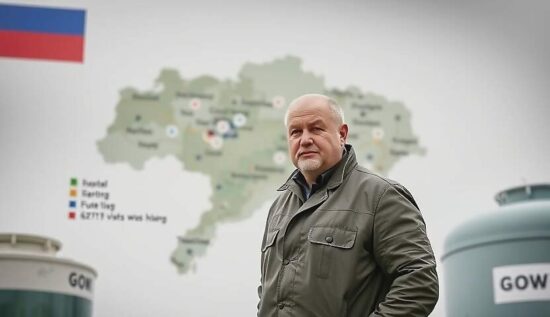Russia to Deliver Humanitarian Gas to Transnistria, Says Leader
The head of the unrecognised Transnistrian Moldovan Republic, Vadim Krasnoselski, announced on a press conference that Russia will deliver gas to the region, describing it as “humanitarian gas”. According to Krasnoselski, the delivery will be in a volume necessary for the population of Transnistria, the heating and energy sector, and industrial enterprises in the region. He stated, “There is no exact date for the delivery, but the fact that the gas delivery will begin is a fact. We will continue to monitor the situation; we just need to wait a little longer.”
The decision was reportedly made during negotiations in Moscow, and the parties will also discuss the delivery route. The contract between Russian Gazprom and Ukrainian Naftogaz, which ensured the transportation of fuel through Ukraine to European countries, expired on December 31, 2024. The Republic of Moldova also received the fuel and delivered it to Transnistria in exchange for electricity for internal consumption. Moscow has repeatedly stated its willingness to extend the agreement, which was rejected by Kiev.
Gazprom cited Moldova’s debt, estimated at $709 million for 2021, as the reason for the gas delivery stop. According to Moldovan Prime Minister Dorin Recean, “this debt does not exist” and Chișinău has no intention of paying it. Krasnoselski accused Moldova of trying to shift its debt to Tiraspoltransgaz, and he described the Russian fuel delivered to the unrecognised republic as “a form of humanitarian aid”. Transnistria was offered help in purchasing gas from the European Union, but local authorities refused and are now waiting for the resumption of deliveries from Russia, according to Moldovagaz.
In the unrecognised republic, power and heating outages have occurred, and the work of all industrial enterprises has been halted due to gas shortages and problems with electricity generation. On January 8, the first deputy chairman of the Transnistrian government, Sergei Obolonik, stated that the fuel reserves would last for 24 days for daily needs. The Kremlin described the current situation as a crisis and held the Republic of Moldova and Ukraine responsible.





